Eve'sdrop was a project about accessing, sharing and comparing women’s health information, which I did with my classmates Laura Kadamus, Rhea Rakshit and Elizabeth Abernethy. It was the final project for Technologies for Designing Change class, taught by Rachel Abrams.
Our project was one of 7 final class projects on which we worked in groups on over 7 weeks, following a process of:
Discovery:
All groups were required to do a literature review and primary research: Interviews with subject matter experts, surveys, workplace visits, as well as extensive desk research.
Definition:
The insights drawn from research led each group to take a stance on what they’d learned.
Design:
From this stance, projects developed as explorations of each topic area.
Definition:
The insights drawn from research led each group to take a stance on what they’d learned.
Design:
From this stance, projects developed as explorations of each topic area.
Eve'sdrop asked: What does first-hand research with both liberal and conservative young women in their 20s and 30s reveal about what’s missing from current “family planning” narratives?

This research-led and data-focused project began when we realized how little we actively learned about reproductive health. We had a hunch that this was a general trend for women in their mid-twenties – that there was a serious gap in information, so we surveyed a range of women in their 20s and 30s and interviewed both self-identifying ‘liberal’ and ‘conservative’ women about the related topics, where they get information.
In high school, we were told how important it was not to get pregnant, which carried on through college. Suddenly, once we reach our thirties, if we want to have children, our biological clocks start ticking very loudly.
By aggregating data about how often women look for reproductive health information, what topics they are interested in, what sources they used and what they imagined for their future, we confirmed our hunch that women in this age group don’t prioritize information about fertility, even though they plan to have children in just a few years. The data also reflected that their priorities shift within five years, while those of men the same age do not. Here’s the full Evesdrop story.
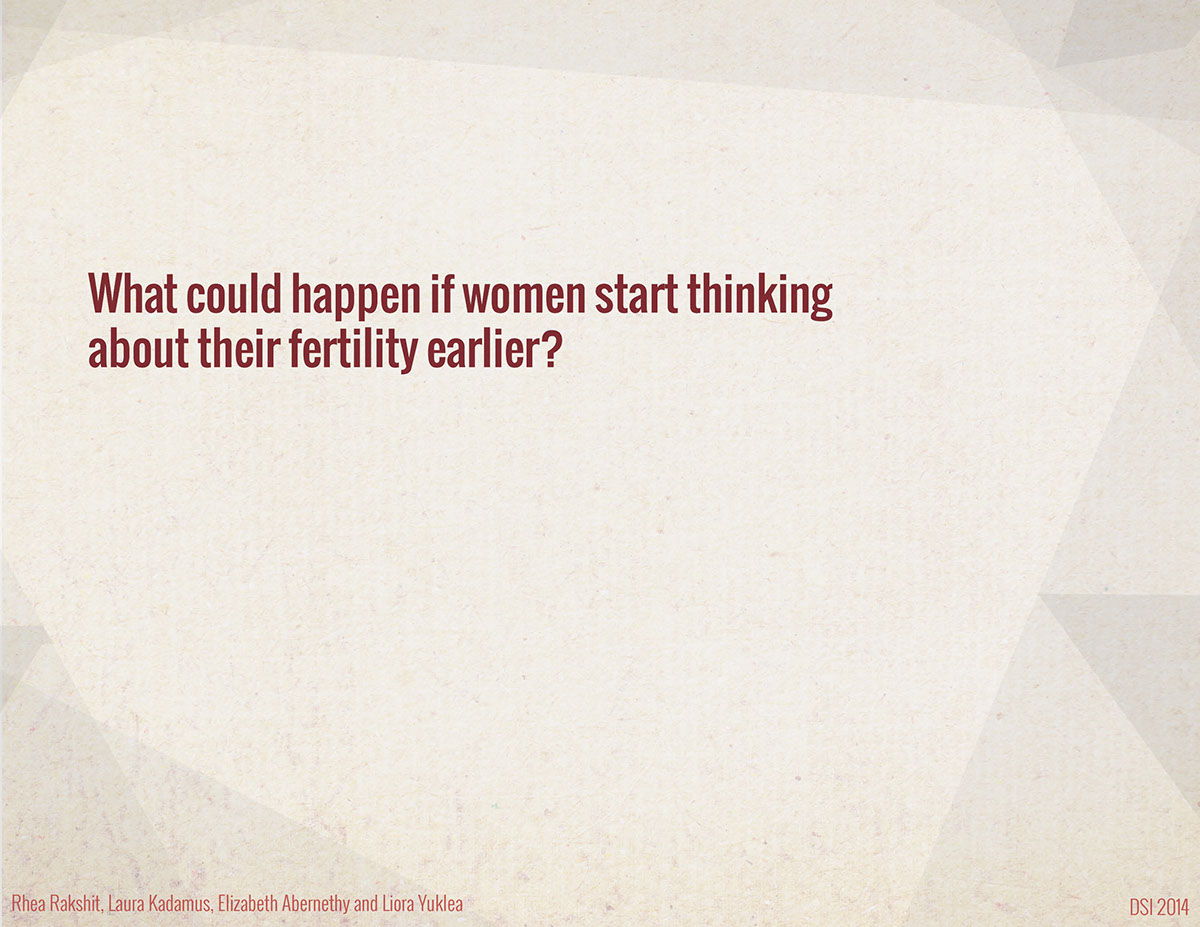



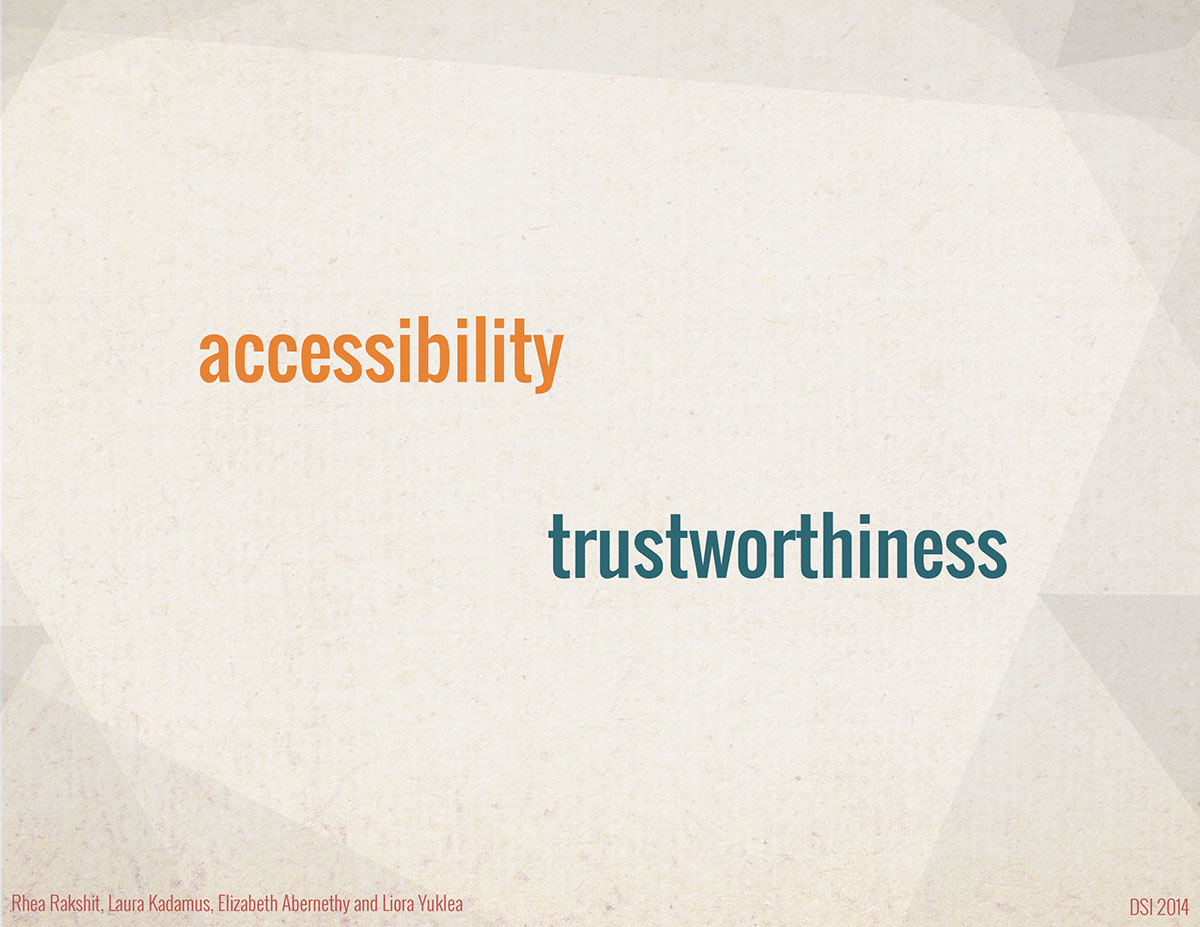

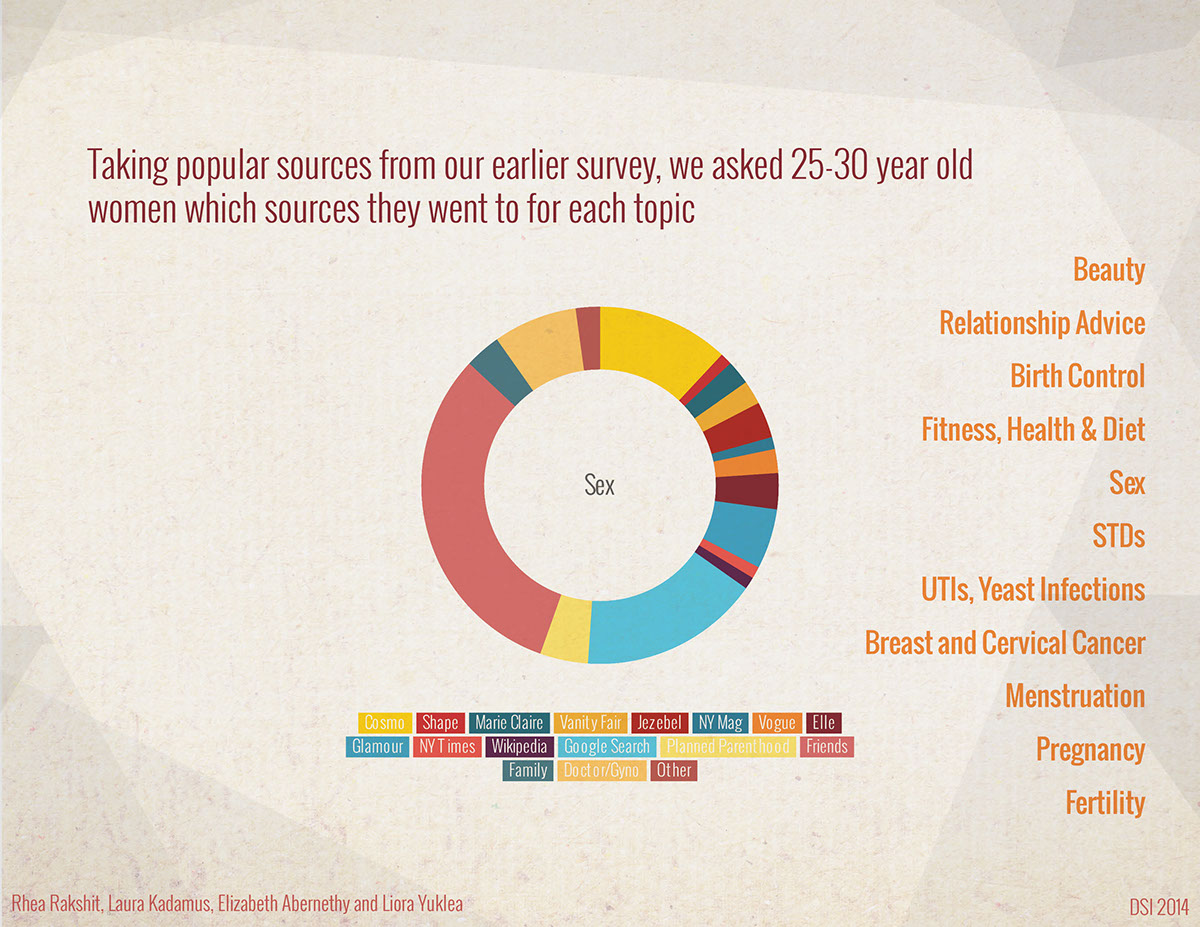
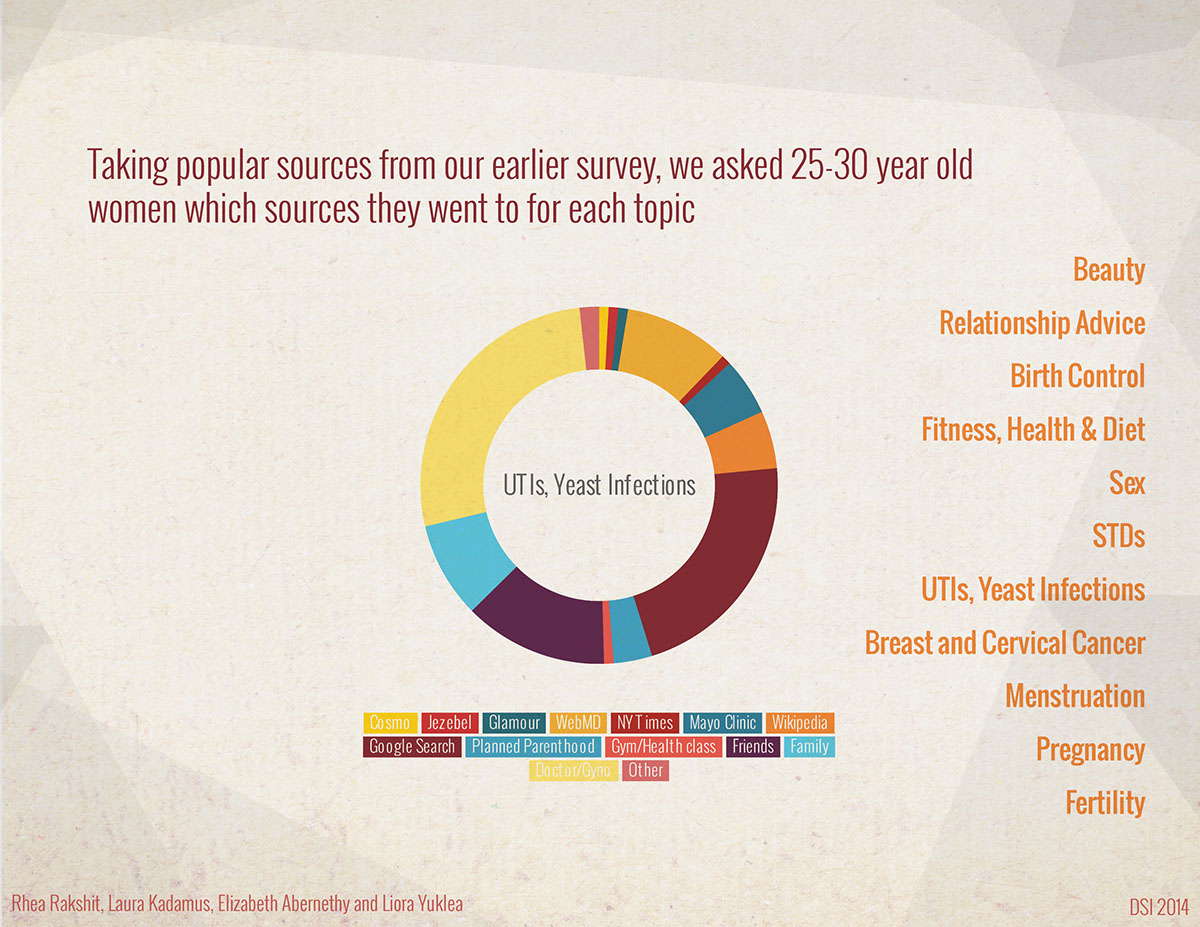
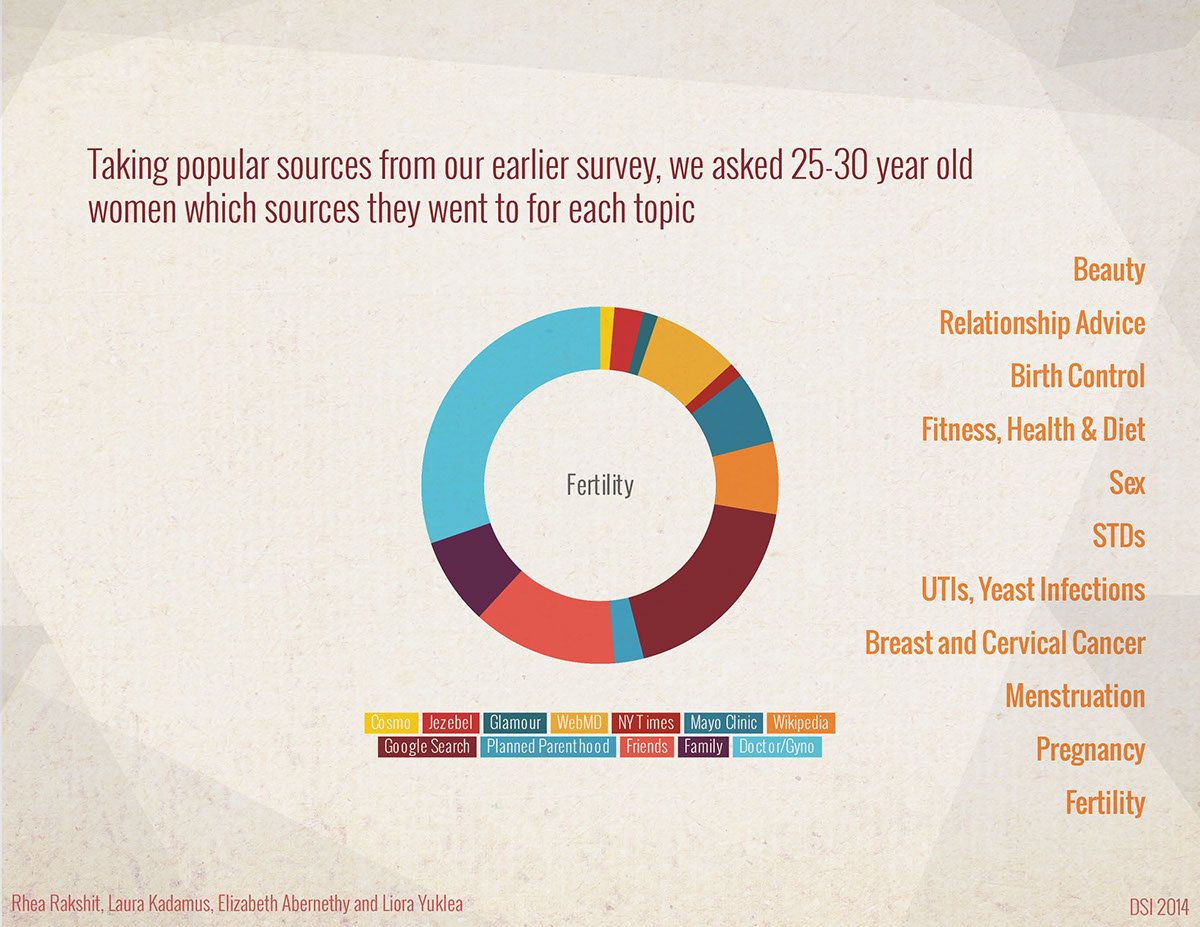
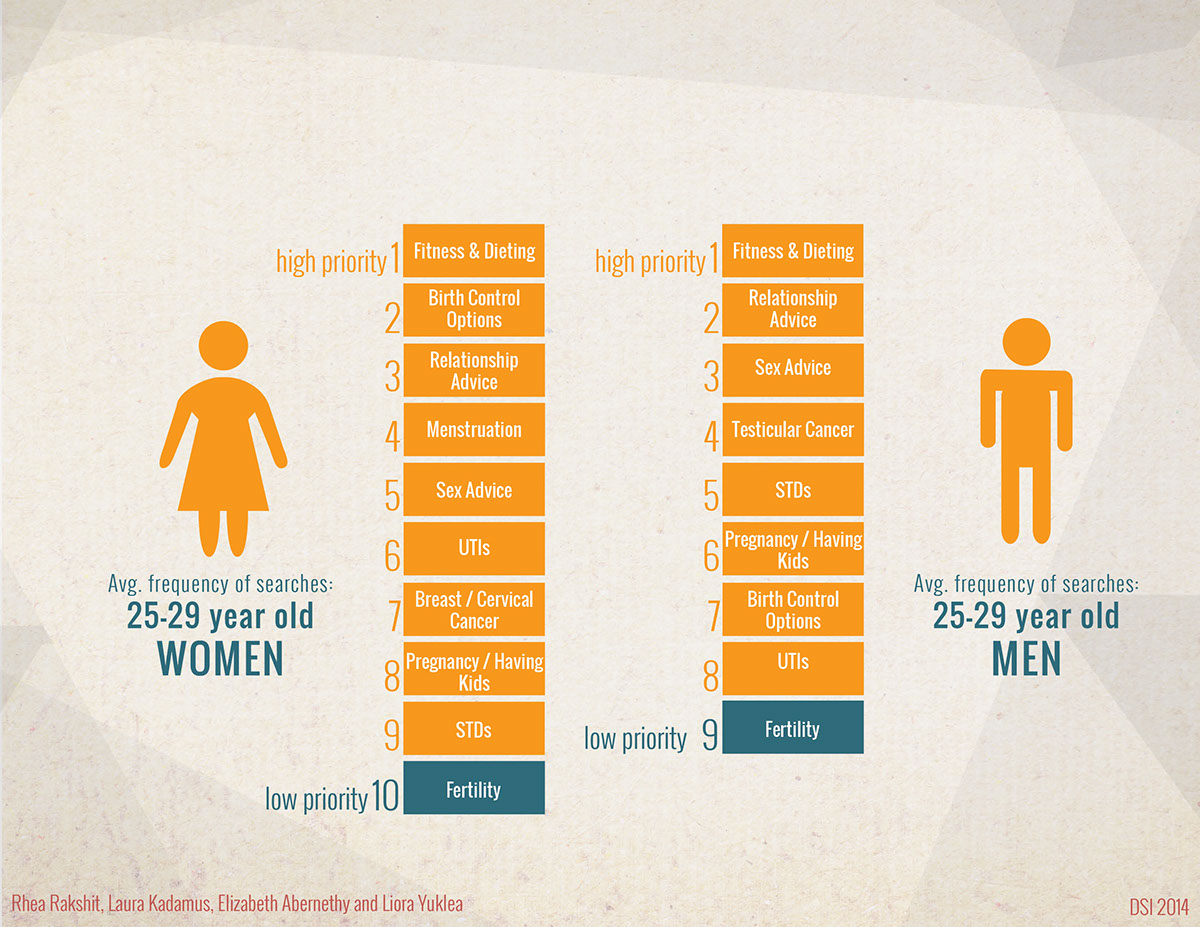
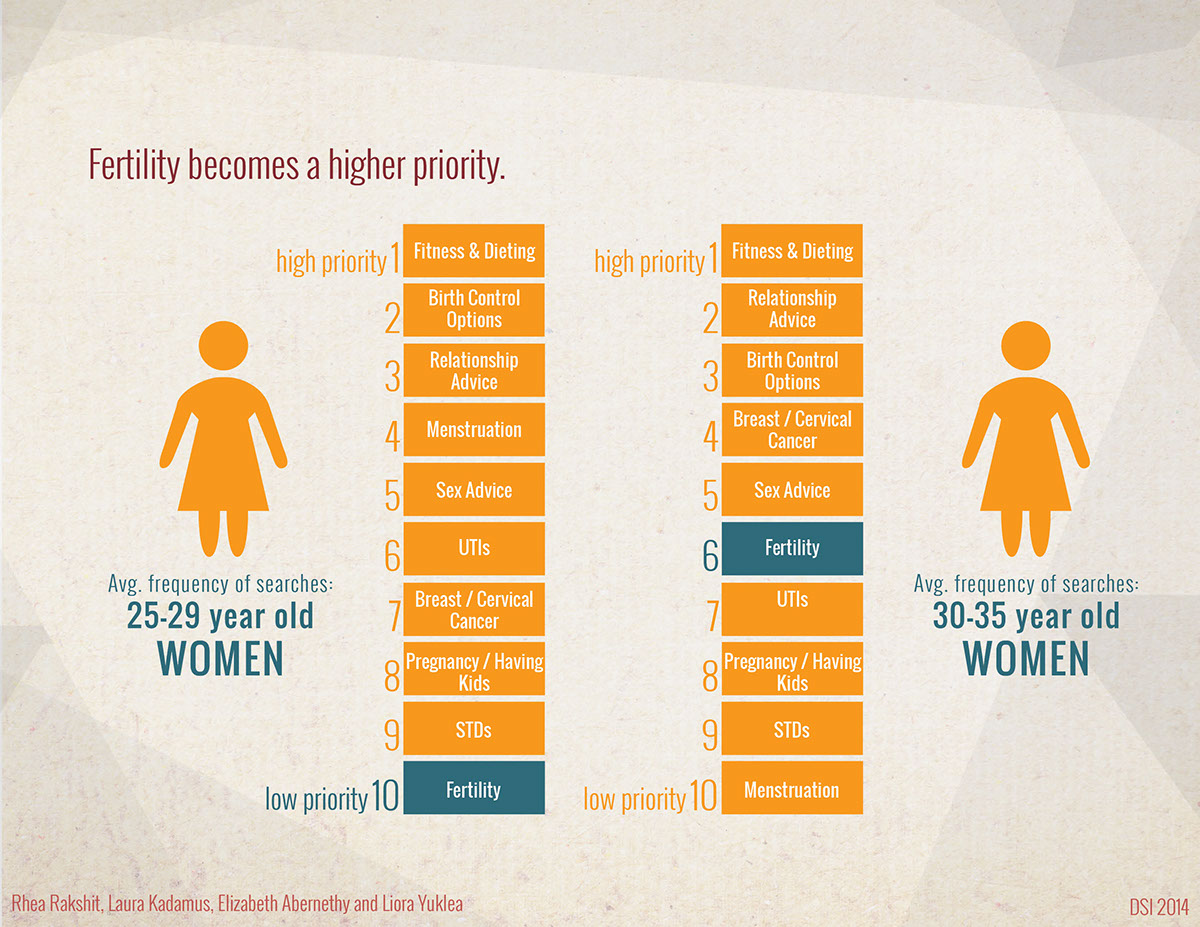
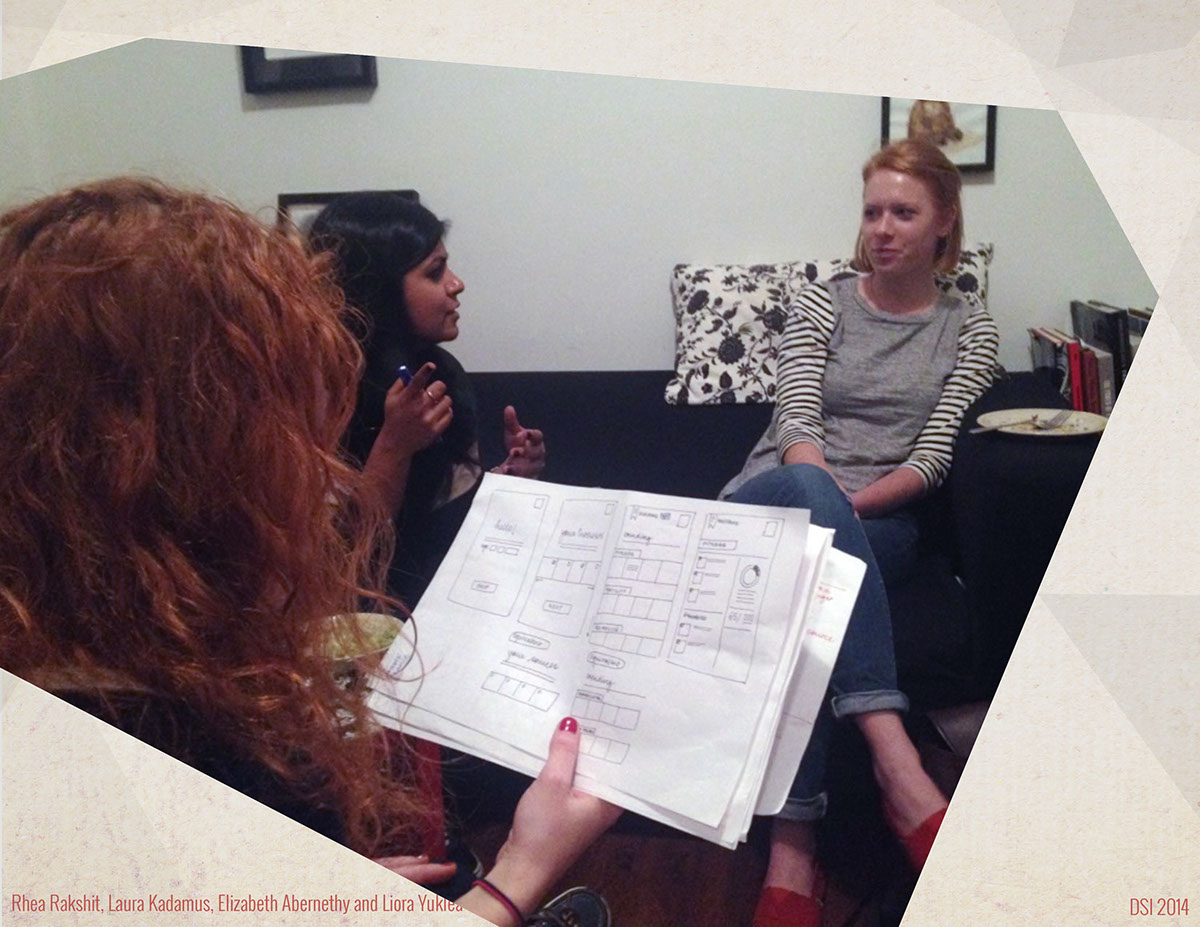
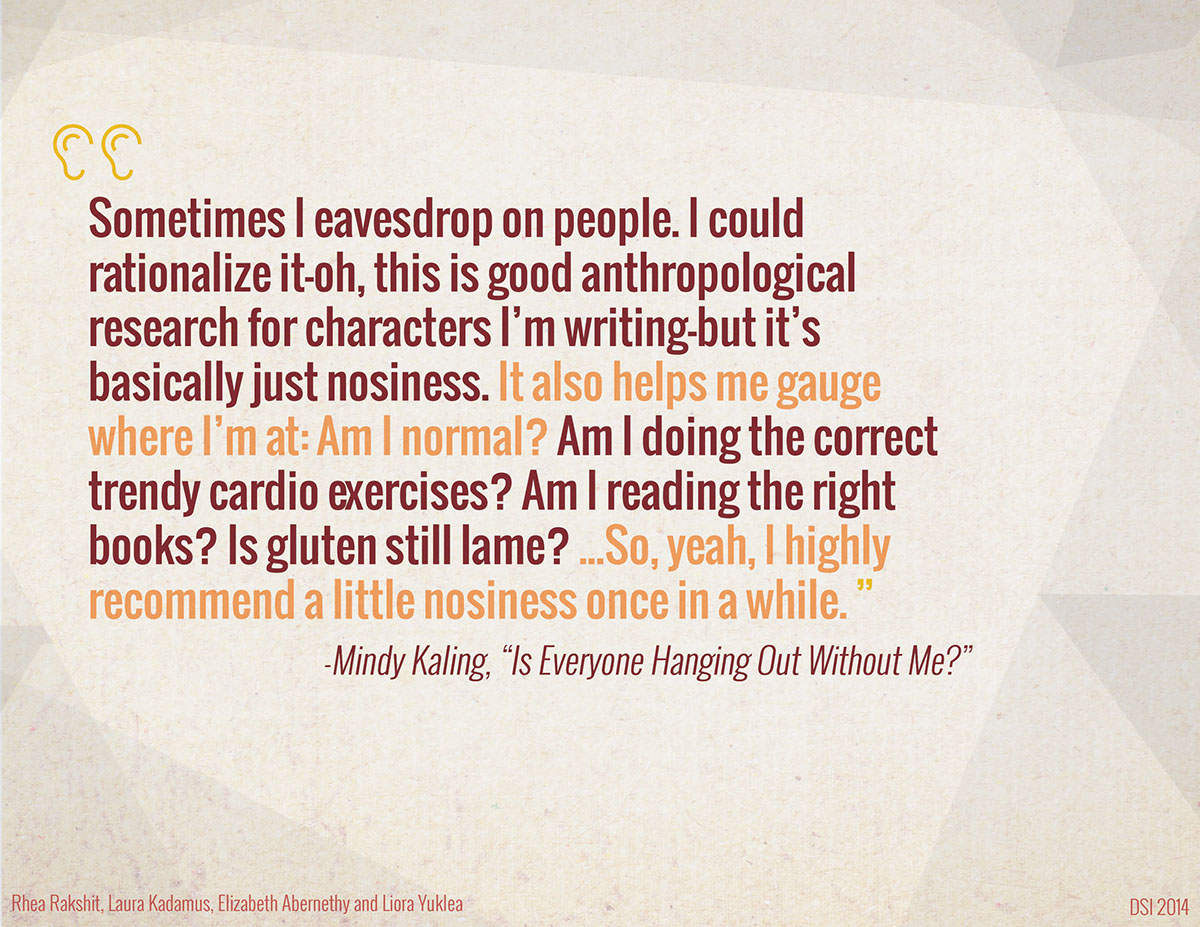
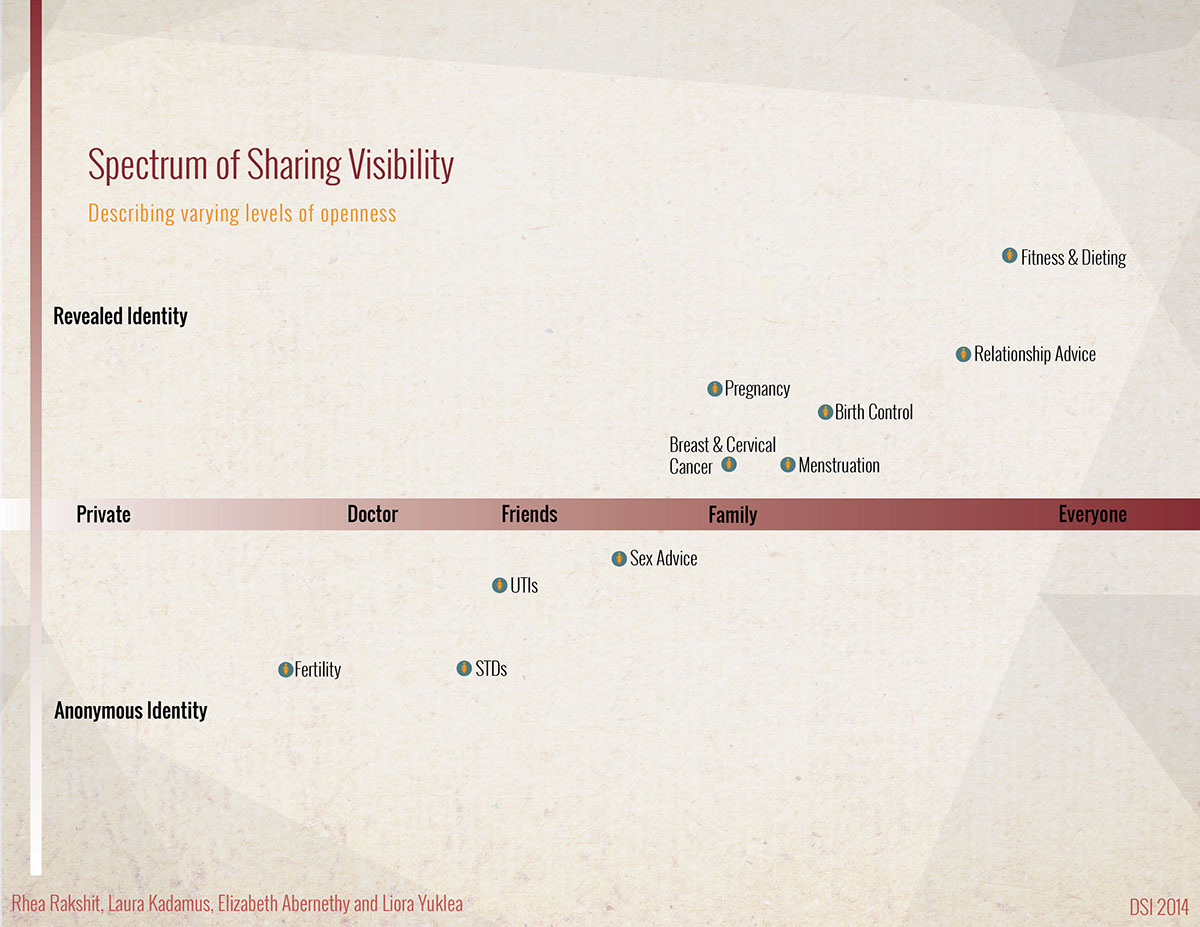
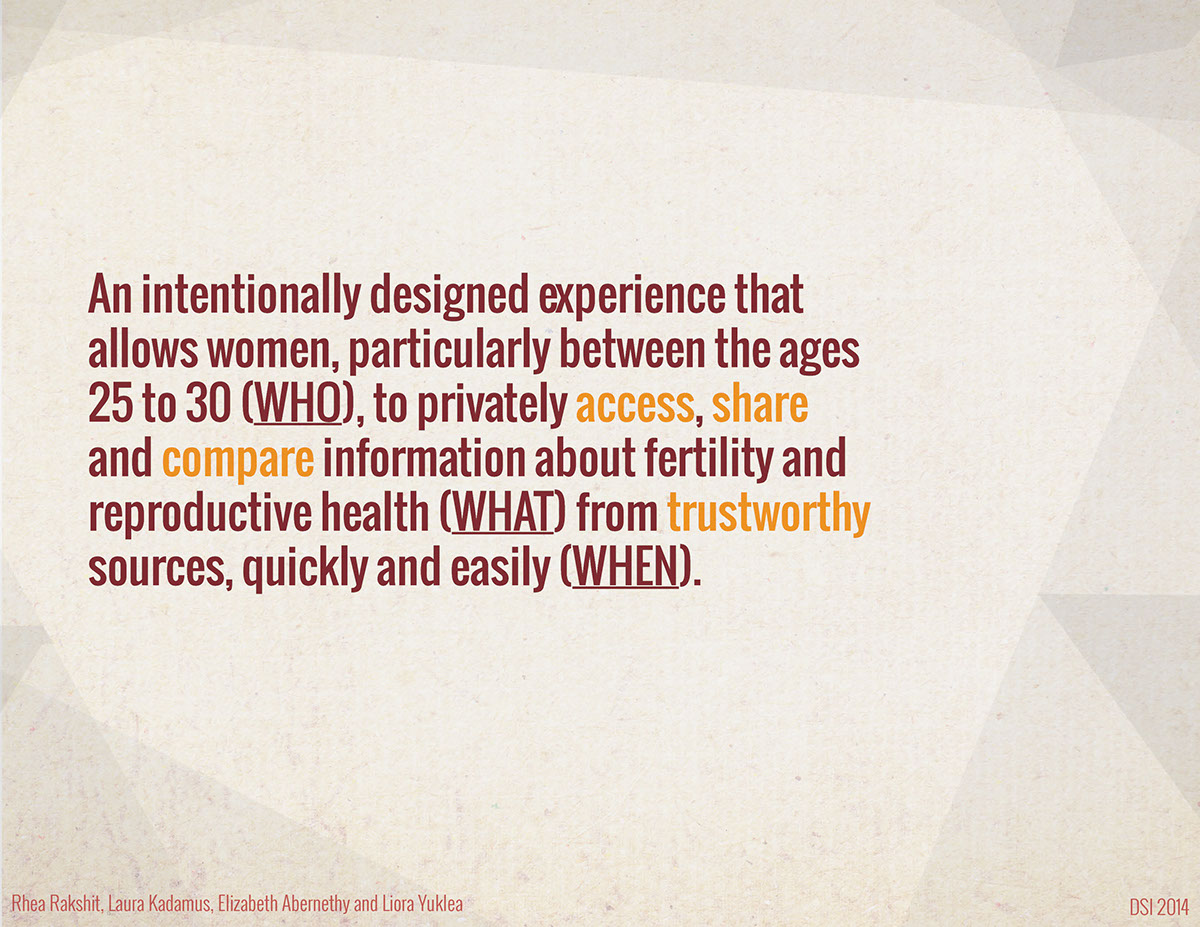

Observations/implications
There is a lack of any kind of intentionally designed experience that allows women, particularly between the ages 25 to 30, to privately access, share and compare information about fertility and reproductive health from trustworthy sources, quickly and easily. Our insights informed our classmates working on the Roar! and Tough Stuff projects.
There is a lack of any kind of intentionally designed experience that allows women, particularly between the ages 25 to 30, to privately access, share and compare information about fertility and reproductive health from trustworthy sources, quickly and easily. Our insights informed our classmates working on the Roar! and Tough Stuff projects.
